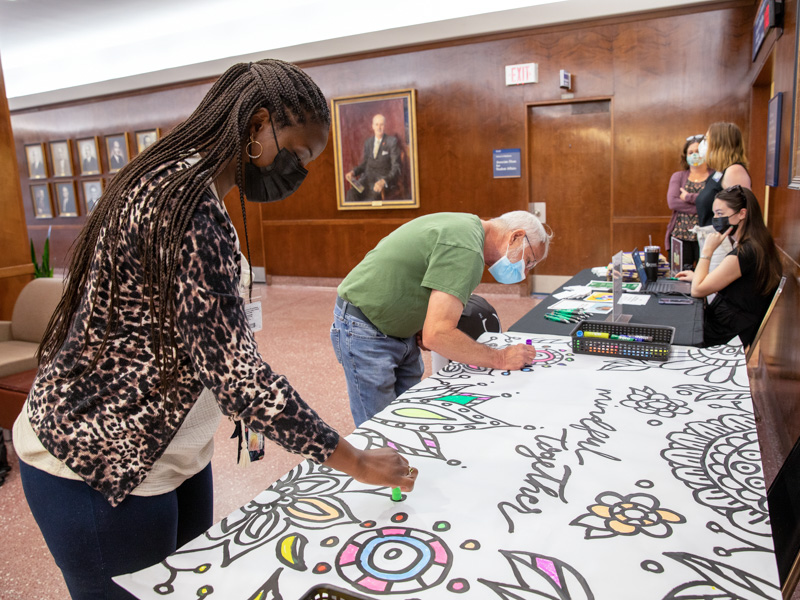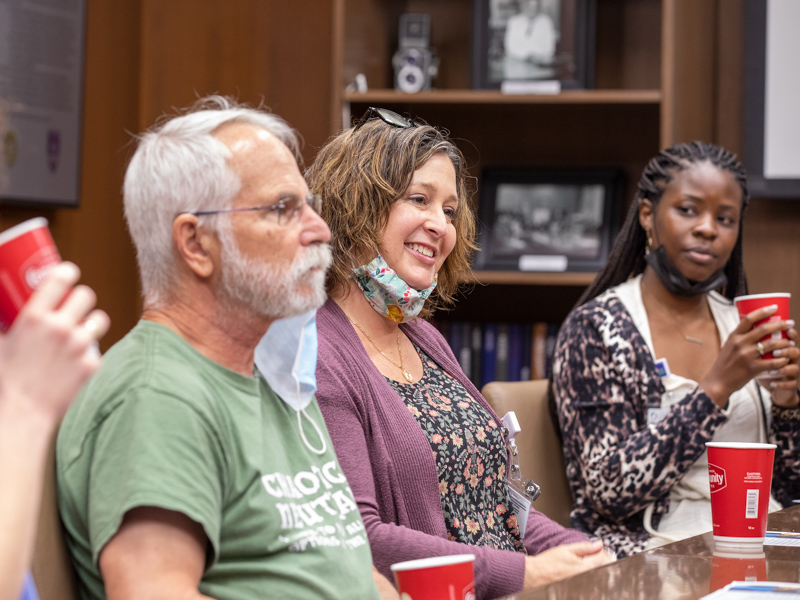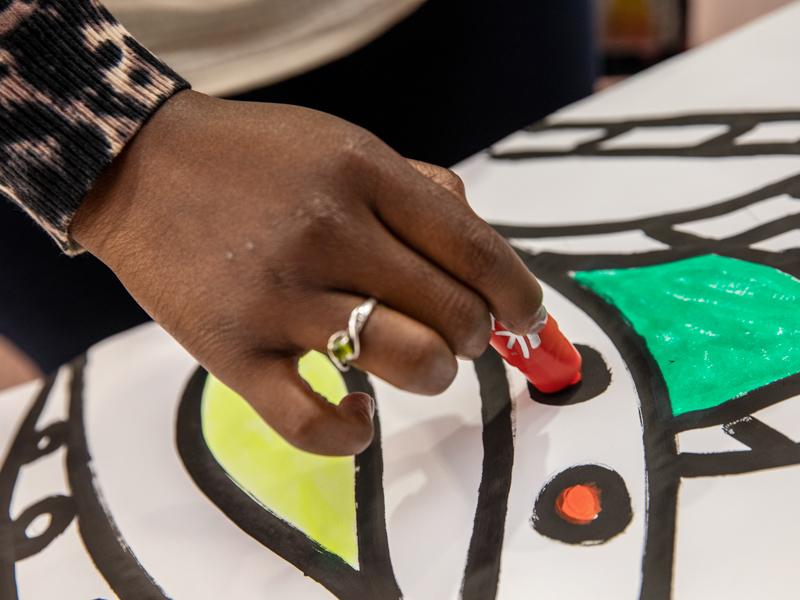Employees, students explore benefits of mindfulness meditation, gratitude journaling

The next time you pour yourself a cup of coffee or tea, sit somewhere quiet where you won’t be distracted. Before even taking a sip, inhale and take a few minutes to really take in the richness of its hues, the complexity of its aroma, the warmth of the cup in your hands, the effervescence of the steam evaporating from the liquid.
Then take a sip and savor its flavor for a few moments before swallowing, much like a sommelier would the notes in a glass of wine.
Pay attention to how you feel – emotionally and physically – as you explore and enjoy the beverage, sense by sense.
Small groups of employees and students gathered on a recent Thursday for mindfulness meditation sessions led by Sadara Evans, project manager in the Office of Well-being.
With their drink of choice in hand – peach tranquility or earl grey tea, coffee (with or without caffeine) – they sat around a conference room table in J. Lincoln Arceneaux for roughly 20 minutes, together inhaling, breathing, savoring, being mindful -- meditating.

Dr. David Brown, professor of cell and molecular biology, and one of the first to show up, was in search of “a way to help reduce stress and develop more efficient work habits. Also, perhaps to become better at not bringing work issues home with me.
“I have a stressful job and I have been diagnosed with ADHD,” said Brown. “The idea of being able to dissociate temporarily is appealing.I briefly tried transcendental meditation in college, but all I did was fall asleep.”
The meditation series, which has three July dates planned, is the first in a number of resources the Office of Well-being is bringing to employees and students, thanks to a three-year $3 million Health Resources and Services Administration grant.

“I feel so passionate about this topic and the many benefits mindfulness and meditation have on both body and mind,” said Evans. “We are lucky now to have so much research on how these ancient practices reduce stress, anxiety, and risk for burnout/mental health concerns. They also increase work productivity and workplace satisfaction, and can help improve blood pressure.”
Evans, who has been practicing yoga for 13 years and (following training and certification) teaching yoga and meditation for five years, said she hopes employees and students will take advantage of the resources.
“Ultimately, the goal of our office is to provide UMMC staff with the tools and resources they need to be empowered and resilient human beings,” said Evans. “Cultivating and growing the skill of mindfulness is just one of the many tools in the well-being toolbox that we hope to provide to employees on their personal wellness journey.”
After participating in a session during Employee Appreciation Week, Alyssa McCarron, a researcher in the School of Medicine - Pediatrics, was happy to see more sessions being offered.
“I felt refreshed and calm afterward,” said McCarron. “It was a great way to restart my mindset for the second half of the day. I would love to start incorporating a few minutes of meditation at the start of my day and midday. I think it is really easy to go through the motions of everyday tasks. Mediation allows me to take a step back and reengage. I would highly encourage others to attend upcoming sessions.”
Participants also received small manila-and-blue colored journals with the words “3 Good Things” on the cover. A one-page instruction manual inside encouraged them to write down three things that went well for them every day for at least one week, with an explanation of why it went well. Why? Creating a physical record of the positive things that happen makes a difference in how you feel.

Iesha Smith, a professional counselor in the Office of Well-being, said the practices are good ways to become more in tune daily with your thoughts and emotions. Mindfulness simply means becoming more self-aware of the present moment, instead of worrying about the things happening around us, which leads to more stress and anxiety, she explained.
“Mindfulness and gratitude journaling have been incredibly helpful techniques to assist some of my clients in the past with managing their stress and anxiety,” said Smith.
“If we don’t take the time to stop and recognize the positives around us or things that we’re grateful for, no matter how big or small, it can most definitely have a negative impact on our mental health.”


